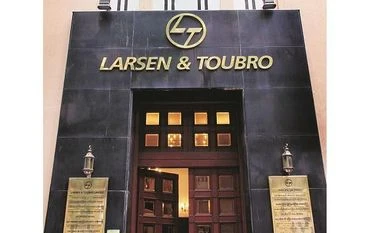Larson & Toubro (L&T) emerged as the lowest bidder for selling 5 million smart meters in the tender issued by Energy Efficiency Services Limited (EESL).
The company has been selected through an international competitive bidding. L&T quoted the lowest price of Rs 2,722, per single phase smart meter, said EESL in a public statement. The price quoted by L&T is 40-50% lower than the current market rates.
The tender is the world's largest single smart meter procurement. 4 million smart meters will be deployed in UP and the remaining 10 lakh in Haryana.
EESL said, "The meters are being procured for implementation of smart grid projects in Haryana and Uttar Pradesh since these states grapple with huge AT&C losses, with the latest figures for both states being 28.42% and 34.36% respectively. The smart meters will help these states in not only significantly reducing their AT&C losses by way of increased billing efficiency, but will completely change the way in which electrical energy is presently being consumed and paid for by the consumers."
The smart meters procured by EESL use GPRS technology to allow two-way communication between the DISCOM and consumers. Once installed, an energy supplier can read a meter via the mobile phone network. Householders can also receive a digital display which helps them to access how much power they are consuming - and its cost - in real time. Smart meters enable one to see the consumption pattern and the cost.
The repayment to EESL will be through savings resulting from enhanced billing efficiency, avoided meter reading costs, etc. It is said that the average cost of meter reading is Rs 40 per meter, which will be completely avoided.
To read the full story, Subscribe Now at just Rs 249 a month
Already a subscriber? Log in
Subscribe To BS Premium
₹249
Renews automatically
₹1699₹1999
Opt for auto renewal and save Rs. 300 Renews automatically
₹1999
What you get on BS Premium?
-
Unlock 30+ premium stories daily hand-picked by our editors, across devices on browser and app.
-
Pick your 5 favourite companies, get a daily email with all news updates on them.
Full access to our intuitive epaper - clip, save, share articles from any device; newspaper archives from 2006.
Preferential invites to Business Standard events.
Curated newsletters on markets, personal finance, policy & politics, start-ups, technology, and more.
Need More Information - write to us at assist@bsmail.in
)